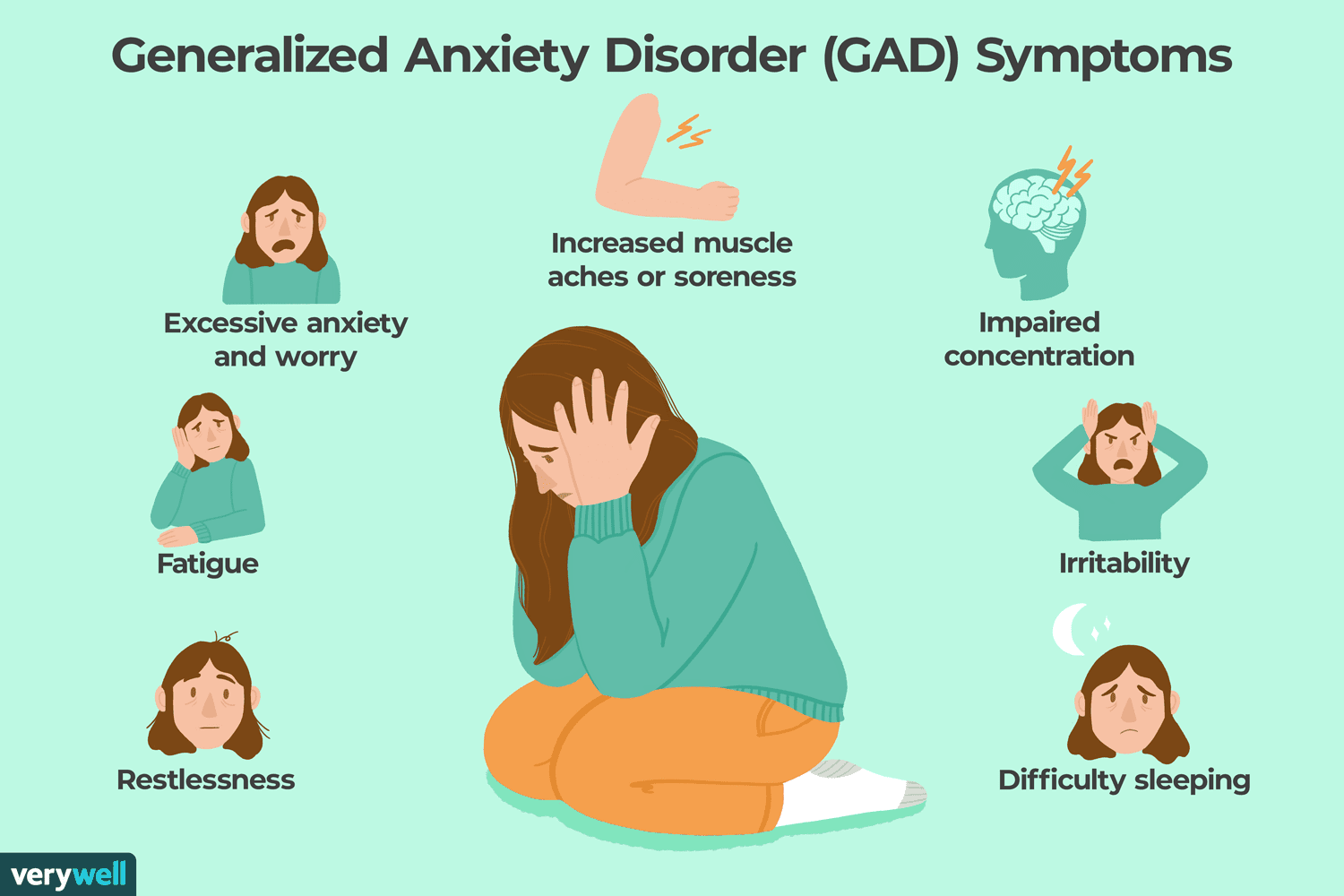TNews - Anxiety disorders are a group of mental health conditions characterized by excessive and uncontrollable feelings of fear and worry. These disorders can disrupt daily activities and impact an individual's overall quality of life. In this article, we will explore various aspects of anxiety disorders, including their types, potential causes, common symptoms, and available treatment options.
Types of Anxiety Disorders
Anxiety disorders encompass a range of conditions, each with its unique characteristics. Here are some of the most common types:
- Generalized Anxiety Disorder (GAD): Individuals with GAD experience excessive and uncontrollable anxiety and worry about various aspects of their lives, such as health, finances, and the future.
- Panic Disorder: People with panic disorder suffer from recurrent panic attacks, sudden and intense episodes of fear. These attacks often come with physical symptoms like shortness of breath, rapid heartbeat, sweating, and trembling.
- Phobias: Phobias involve irrational and excessive fears of specific objects or situations. There are various types of phobias, including social phobia (fear of social situations), acrophobia (fear of heights), and arachnophobia (fear of spiders), among others.
- Social Anxiety Disorder: Social anxiety disorder, also known as social phobia, leads to excessive anxiety and fear in social situations, such as public speaking or meeting new people.
- Separation Anxiety Disorder: This disorder results in excessive anxiety and fear when individuals are separated from loved ones or attachment figures.
Causes of Anxiety Disorders
The exact causes of anxiety disorders are not fully understood, but several factors are believed to play a role:
- Genetic Factors: There is evidence to suggest that anxiety disorders can run in families, indicating a genetic predisposition.
- Biological Factors: Imbalances in neurotransmitters in the brain may contribute to the development of anxiety disorders.
- Psychological Factors: Traumatic or highly stressful life experiences can increase the risk of anxiety disorders.
- Environmental Factors: An unhealthy living environment, characterized by conflict or violence, may elevate the risk of anxiety disorders.
Symptoms of Anxiety Disorders
Symptoms of anxiety disorders vary depending on the specific type of disorder but often include the following:
- Excessive and uncontrollable feelings of fear and worry.
- Difficulty concentrating.
- Sleep disturbances.
- Muscle tension.
- Fatigue.
- Headaches.
- Nausea and vomiting.
- Diarrhea.
- Panic attacks.
It's important to note that these symptoms can significantly impact an individual's daily life and overall well-being.
Read more : Get to know the Mangrove Forest
Treatment for Anxiety Disorders
Fortunately, anxiety disorders can be effectively treated through various approaches, including:
- Psychological Therapy: Psychological therapies, such as Cognitive-Behavioral Therapy (CBT), are highly effective in helping individuals with anxiety disorders identify and modify negative thoughts and behaviors that trigger their anxiety.
- Medications: Medications, including antidepressants and anti-anxiety drugs, can help reduce anxiety symptoms. These are often used in conjunction with therapy.
If you or someone you know is experiencing symptoms of an anxiety disorder, it is crucial to seek help promptly. Consultation with a healthcare professional or psychologist is essential for receiving an accurate diagnosis and appropriate treatment. Early intervention can significantly improve the prognosis and quality of life for individuals living with anxiety disorders.
Anxiety disorders are a prevalent form of mental health condition that can significantly impact an individual's life. While the exact causes of these disorders remain unclear, a combination of genetic, biological, psychological, and environmental factors is believed to contribute to their development. Recognizing the symptoms and seeking timely treatment through psychological therapy, medication, or a combination of both can make a substantial difference in managing and overcoming anxiety disorders. If you or someone you know is struggling with anxiety symptoms, remember that help is available, and it's essential to reach out to a healthcare professional for support and guidance. By addressing anxiety disorders early, individuals can lead more fulfilling and anxiety-free lives, enjoying improved overall well-being and a brighter future.

